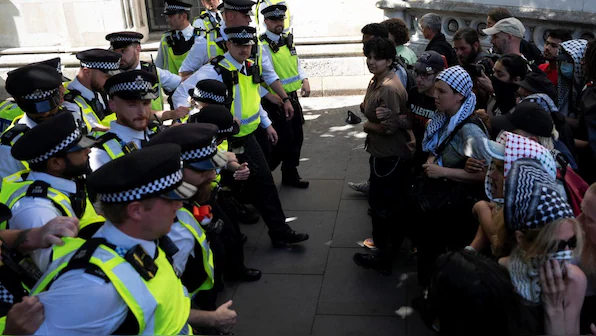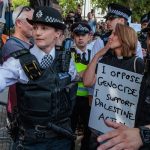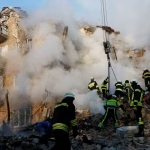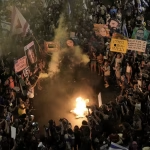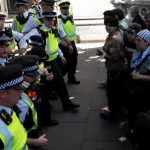In a move that has sparked widespread debate across Britain and beyond, UK police have officially charged 67 individuals for their alleged involvement in activities supporting the Palestine Action campaign. This mass charging has reignited conversations about civil disobedience, freedom of speech, and the role of protest movements in shaping political discourse.
The charges, ranging from criminal damage to public order offenses, highlight the growing tension between pro-Palestinian activism and government crackdowns on what authorities consider unlawful protest. But for many activists, these arrests represent a broader suppression of dissent and a silencing of voices speaking out against global injustices.
This article takes an in-depth look at what happened, who the 67 individuals are, what Palestine Action stands for, and why this case has become a turning point in Britain’s ongoing debate over protest rights, foreign policy, and corporate accountability.
Who Are the 67 People Charged?
The group of 67 people charged by UK police includes activists, students, and ordinary citizens who joined protests under the banner of Palestine Action, a direct-action campaign that has grown rapidly in the last few years. According to initial reports, those charged were allegedly involved in acts of trespass, property damage, and disruptions at facilities linked to the UK arms industry.
Some of the defendants have been accused of participating in demonstrations at factories allegedly supplying weapons to Israel. Others were linked to sit-ins, spray-painting campaigns, and even occupations of office spaces. While authorities argue these actions caused economic harm and endangered safety, the activists maintain that their efforts were peaceful forms of resistance aimed at exposing complicity in human rights abuses.
The mass charging is one of the largest coordinated legal actions against pro-Palestinian campaigners in the UK in recent years. It raises important questions about whether the criminal justice system is being used to deter activism at a time when public opinion on international conflicts is sharply divided.
What is Palestine Action?
Palestine Action is a UK-based grassroots movement founded in 2020. Its mission is to “shut down” companies that manufacture or supply arms to Israel, particularly those accused of enabling the Israeli military’s operations in Gaza and the West Bank.
The group is best known for its bold and often controversial tactics, which include:
Occupying arms factories.
Scaling rooftops to unfurl banners.
Spray-painting buildings in red to symbolize blood.
Locking themselves to machinery or gates to halt production.
Unlike traditional protest movements that rely on marches or petitions, Palestine Action focuses on disruptive direct action. Their slogan, “If they won’t stop killing, we won’t stop acting,” underscores their commitment to continuous protest until companies cease arms dealings.
Supporters of the campaign argue that these actions are necessary because the UK government has failed to act against corporations profiting from conflict. Critics, however, accuse the group of crossing the line into criminality, vandalism, and endangering workers.
Why Were the Charges Brought Now?
The decision to charge 67 people simultaneously did not happen in a vacuum. Over the past year, Palestine Action has significantly escalated its activities, targeting high-profile defense contractors across Britain.
Some of the most notable incidents include:
The occupation of factories owned by Elbit Systems, a major Israeli arms manufacturer with subsidiaries in the UK.
Disruptions at offices of corporations accused of supplying drones and surveillance technology.
Coordinated nationwide demonstrations that forced temporary shutdowns of industrial facilities.
Authorities argue that the scale and frequency of these actions posed a growing threat to public safety and economic stability. The mass charges appear to be part of a broader strategy to deter activists through legal consequences.
But critics say this timing is politically motivated, coinciding with heightened tensions in the Middle East and increased scrutiny of Britain’s role in arms exports. Civil liberties groups warn that criminalizing protest at this level risks undermining democracy itself.
Public Reaction
The charges have polarized public opinion in the UK.
On one hand, supporters of Palestine Action view the move as proof that the government is siding with corporations over human rights. Social media platforms quickly filled with solidarity messages, crowdfunding campaigns for legal defense, and calls for continued resistance.
A university student from Birmingham, one of the individuals charged, told reporters: “I stood on a rooftop with a banner because my government is complicit in war crimes. If that makes me a criminal, then so be it.”
On the other hand, critics of the movement argue that while support for Palestine is legitimate, unlawful tactics cross a red line. Business groups and local authorities have complained about damage costs running into millions of pounds. Some commentators warn that tolerating such disruptive protests could set a dangerous precedent.
This divide mirrors a broader cultural debate in Britain: how far should free expression and protest rights extend when activism interferes with business or public order?
Legal Implications
The legal battle ahead for the 67 individuals will be closely watched. Some face charges that could lead to lengthy prison sentences if convicted. Defense lawyers are expected to argue that the actions were acts of conscience, protected under principles of free speech and political expression.
Past legal cases have sometimes favored activists in similar situations. In 2021, for instance, a group of Palestine Action protesters was acquitted by a jury after occupying a factory, with jurors reportedly sympathetic to their moral argument.
However, the scale of this case is unprecedented. Legal experts warn that if the prosecutions succeed, it could set a precedent for harsher penalties against future protest movements, not just on Palestine but across causes ranging from climate change to workers’ rights.
The Role of Arms Companies in the Debate
Central to this controversy are the arms companies targeted by Palestine Action. Firms such as Elbit Systems have long been accused by human rights organizations of supplying weapons used in conflict zones. Elbit, in particular, is known for manufacturing drones and surveillance technology reportedly deployed in Gaza.
These companies insist they operate legally, with full compliance to UK export regulations. Government officials also argue that defense exports are crucial for the British economy, supporting thousands of jobs.
Yet critics ask: should economic interests outweigh ethical responsibilities? The Palestine Action campaign is built on the idea that ordinary citizens must step in where governments fail. By criminalizing this movement, detractors say, authorities are shielding corporations from accountability while ignoring the voices of victims abroad.
Historical Context: Protest and Crackdown in the UK
The UK has a long history of protest movements challenging government policy—from the anti-apartheid boycotts of the 1980s to the more recent Extinction Rebellion climate campaigns. Each wave of activism has faced backlash, but also shaped policy in the long run.
In recent years, however, laws governing protests have become more restrictive. The Police, Crime, Sentencing and Courts Act of 2022 gave authorities expanded powers to limit demonstrations deemed too disruptive. Critics argue this has created a chilling effect, making civil disobedience more risky than ever.
The mass charging of 67 people for Palestine Action-related activities appears to be the latest—and possibly the most dramatic—example of this new legal landscape.
Expert Opinions
Legal scholars, human rights activists, and politicians have weighed in on the case.
Amnesty International UK has raised concerns that the charges reflect an erosion of protest rights.
Civil liberties lawyers argue that the prosecutions could be challenged under the European Convention on Human Rights, which protects freedom of assembly.
Government officials, however, defend the move as necessary to uphold law and order. A spokesperson said: “Peaceful protest is a cornerstone of democracy, but criminal damage and unlawful occupation are not.”
The clash between these perspectives will likely play out in courtrooms and public debates for months to come.
The International Dimension
The case has also drawn international attention. Pro-Palestinian movements across Europe and North America have expressed solidarity with the UK activists, warning that their prosecution reflects a broader pattern of criminalizing dissent worldwide.
In many ways, this controversy transcends Britain. It speaks to a global struggle over how societies handle protest movements that challenge powerful industries, especially those linked to war and conflict.
FAQs
What is Palestine Action?
Palestine Action is a UK-based protest movement that targets arms companies allegedly supplying weapons to Israel. It uses direct action tactics such as occupations, spray-painting, and factory shutdowns.
Why were 67 people charged by UK police?
They were charged for allegedly engaging in unlawful activities during Palestine Action demonstrations, including trespassing, property damage, and public order offenses.
What do supporters of the campaign say?
Supporters argue that their actions are morally justified, as they are protesting UK complicity in war crimes by enabling arms sales to Israel.
What are the potential penalties for those charged?
Penalties vary depending on the charges but could range from fines and community service to lengthy prison sentences.
How does this case affect the right to protest in the UK?
The case highlights growing restrictions on protest under recent laws and raises concerns about the criminalization of civil disobedience in Britain.
Conclusion
The charging of 67 people over support for the Palestine Action campaign is more than a legal story—it is a reflection of deeper tensions in British society. It pits government authority against grassroots activism, corporate interests against human rights concerns, and questions of legality against questions of morality.
Whether these individuals are ultimately convicted or acquitted, the case will leave a lasting mark on how Britain views protest, dissent, and its role in international conflicts. It may also inspire new waves of activism, fueled by the belief that justice is worth the risk of prosecution.
As the trials unfold, one question will linger: are these activists criminals, or are they citizens standing on the right side of history?


